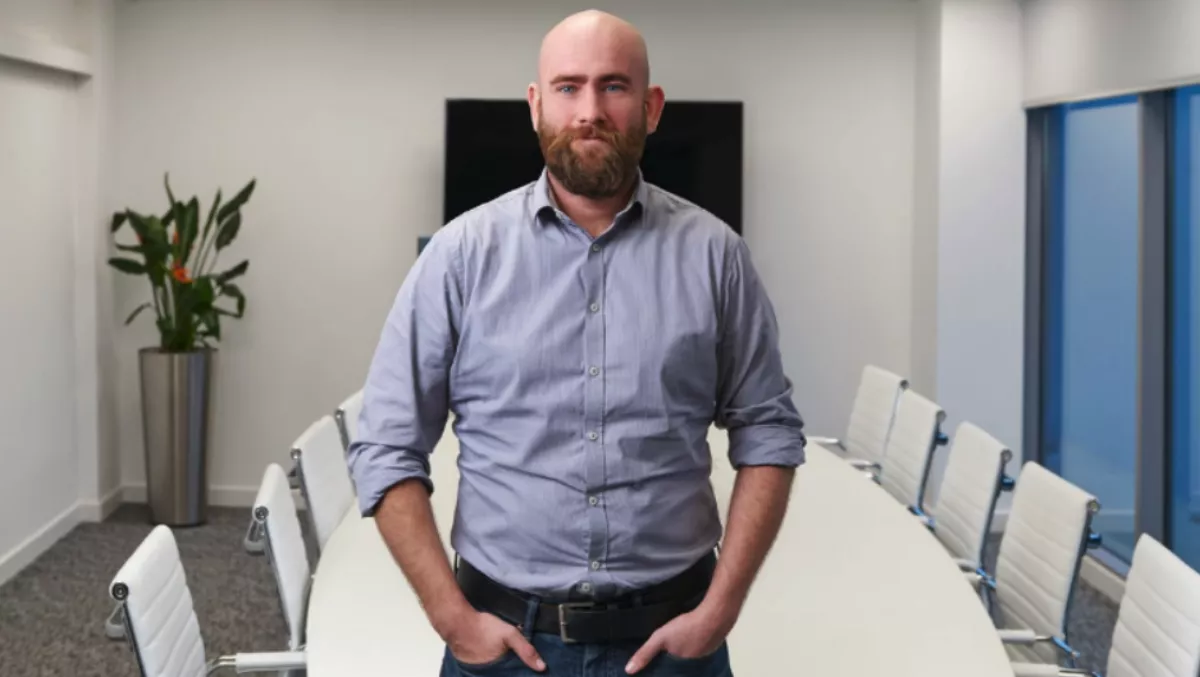
ZoneFox founder shares motivations for founding cybersecurity company
Experts speak about cyber-breaches in terms of when — not if. Overconfidence in perimeter defence simply indicates a neglect of other vital security protocols.
Jamie Graves knows the importance of looking inside as well as out. A PhD in digital forensics, Jamie has spent the last five years bringing a synthesis of machine learning and threat detection out of the Universities and into the market. Founding ZoneFox in 2013, he is pioneering the use of behavioural analytics to both find and prevent insider threats, and to make sure appropriate corrective action can be taken in the event of a breach.
ZoneFox runs in tandem with traditional security systems to provide complete internal visibility and lock down anomalous behaviour — guiding the actions of internal response teams to enable the most efficient utilisation of resources.
Robin Block sat down with Jamie to discuss the founding of ZoneFox and find out what drives him to succeed.
In a competitive market, how did you attract talented people to your organisation — at what point did you feel like your business had been validated?The true validation of this project came the first time we were able to save someone's career — proving that they had been phished and that they themselves were a victim and not colluding with an external party. People still end up getting fired based on faulty data. Preventing that was a major motivation for building the company I have today.
A lot of the success I had came down to selling the project. Right now, we process more events per day than Twitter. For an engineer, solving that logistical problem is a captivating assignment.
Beyond handling the fundamental data load, we overlay things like machine learning and cyber-protocols. Those are buzzwords now, but a few years ago, they were exotic things. Once you offer a competitive salary, the draw for many of the most talented engineers is an interesting challenge and a positive culture. We still have cutting-edge work to do to keep search times in the milliseconds and help security operations teams respond in a timely manner.
Securing Rockstar Video Games in 2015/16, and their sister organisations, was our big break. That allowed us to really refine our technology and develop a beachhead strategy of selling into a company or department and then upselling across the rest of the organisation. Since, we have been able to land several deals with billion-dollar firms.
How difficult is it to differentiate yourself in the cyber market?It is easy to separate yourself from the big guys, at least temporarily — but, then they pick up the messaging and ultimately have a larger megaphone. One thing I have learned in the last year is how much of an arms race marketing truly is.
Technology-vendors have a bad reputation for selling snake oil. I desperately want to avoid that. However, from the inside, it is difficult because of the need to attract attention. You have to shout and continually change your message to get heard. There are a growing number of firms picking up on the trail we have blazed. That creates even more noise.
As the market matures, however, we may find ourselves having an easier time. Few companies have a dedicated budget for behavioural analytics and insider threats. I used to go to trade shows and have to talk to someone for 5-10 minutes before they even understood what we do. Now, terms like UEBA have become standard. I think we have a great opportunity on our hands — but, it is still early days.
We have to make sure that we continue to be viewed as thought leaders even once our competitors catch up to us. Doing that is about continuing to listen to your customers.
How have you changed throughout this process — what is the end-game?I am motivated by the same thing that drove me to build ZoneFox — curiosity. I have always been captivated by a need to see what is over the next hill. I wasn't planning on doing a PhD, or attending University for that matter — but, when the time came, I felt like I had to know what it would be like. When I graduated, I knew that I didn't want the predictability of academia — founding a company to explore the next option was what I had to do.
My goal is simply to explore this as far as I can. The company is now approaching another hill and I am excited to see what is beyond — it very well might be a mountain. ZoneFox is almost in the scale-up stage. We have a formulation that works, now it is about tweaking that to go global. We want to take what we have done in the UK and replicate that in the US and East Asia.
There are some technologies out there that I think we could do some amazing things with. I would love to go through the process of acquiring companies and integrating their capabilities. I want to take the business global, tackle the challenge of integrating acquired companies and then move on to a new challenge.
One day I would love to get back into some really technical work. My focus on building a business has not provided me the time recently to really get in deep with some of the things that brought me into the industry. I have changed a lot through this process. However, nothing has changed my desire to learn something new every day. At heart, I am an engineer.

